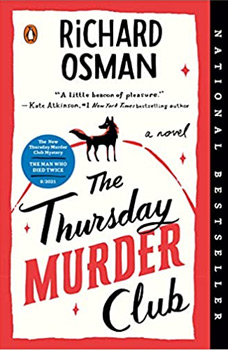Summary | Excerpt | Reviews | Beyond the book | Read-Alikes | Genres & Themes | Author Bio

A tender new novel about music, celebrity, local intrigue, and lost love - all set by the Mediterranean Sea.
Aside from his trusty piano, Alfred Busi lives alone in his villa overlooking the waves. Famed in his town for his music and songs, he is mourning the recent death of his wife and quietly living out his days, occasionally performing the classics in small venues - never in the stadiums he could fill when in his prime. On the night before receiving his town's highest honor, Busi is wrested from bed by noises in his courtyard and then stunned by an attacking intruder - his hands and neck are scratched, his face is bitten. Busi can't say what it was that he encountered, exactly, but he feels his assailant was neither man nor animal.
The attack sets off a chain of events that will cast a shadow on Busi's career, imperil his home, and alter the fabric of his town. Busi's own account of what happened is embellished to fan the flames of old rumor - of an ancient race of people living in the surrounding forest - and to spark new controversy: something must finally be done about the town's poor, the feral vagabonds at its edges, whose numbers have been growing. All the while Busi, weathering a media storm, must come to terms with his wife's death and decide whether to sing one last time.
In trademark crystalline prose, Jim Crace portrays a man taking stock of his life and looking into an uncertain future, all while bearing witness to a community in the throes of great change - with echoes of today's most pressing social questions.
The Melody has the illusory effect of a siesta in the afternoon sunshine...a hazy quality that invites the reader to fall into its dream-like prose and embrace its ambiguities...continued
Full Review
 (530 words)
(530 words)
(Reviewed by Dean Muscat).

Alfred Busi, the protagonist of The Melody, is described by author Jim Crace as being a singer in the European chanson tradition. This lyrically-drive musical form originated in medieval France as the chanson de geste ("song of heroic deeds"), epic poems recounting the glorious tales of famous heroes set to music. The songs employed basic monophonic melodies, meaning the music would consist of a single melody unaccompanied by harmony or chords. Over the next few centuries the chanson form continued to develop to incorporate more complex musical techniques and lyrics that moved away from the epics to the subject of courtly love.
The modern version of the chanson emerged between the 1880s and the end of World War II with the chanson r&#...

If you liked The Melody, try these:

The Phone Booth at the Edge of the World
by Laura Imai Messina
Published 2022
The international bestselling novel sold in 21 countries, about grief, mourning, and the joy of survival, inspired by a real phone booth in Japan with its disconnected "wind" phone, a place of pilgrimage and solace since the 2011 tsunami.

by Richard Osman
Published 2021
Four septuagenarians with a few tricks up their sleeves
A female cop with her first big case
A brutal murder
Welcome to...
THE THURSDAY MURDER CLUB